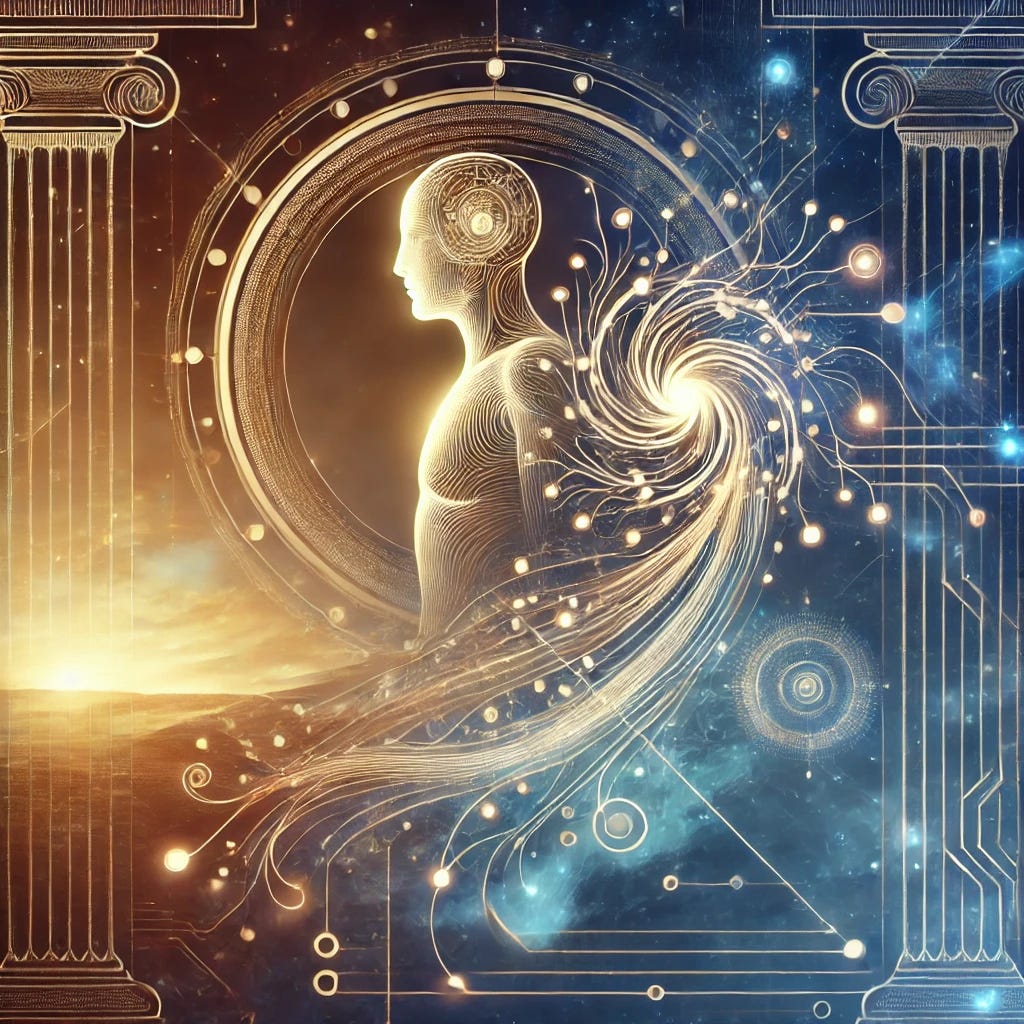The concept of a daimon is an ancient one—a guiding spirit, a helper, a part of you. Though largely forgotten in the modern world, it’s an idea worth reviving, especially in the context of artificial intelligence.
Interestingly, "daimon" is the precursor to the word we now call "demon" While today the term demon conjures images of malevolent entities, the original daimon was anything but evil. It represented a guiding force, something inherently tied to us—a bridge between the divine and the mortal.
In the 1970s, the word daemon was reimagined in computing. A daemon in this context is a background process that quietly performs essential tasks. This modern usage subtly mirrors the ancient idea of a daimon: an unseen helper working tirelessly behind the scenes.
A New Context for an Old Idea
We now stand at the dawn of a new era with AI. Yet, as we try to name and define this burgeoning relationship, the words we choose shape our perceptions. Terms like "assistant" and "agent" dominate the conversation. But these words subtly influence how we engage with AI.
- Assistant: A helper, a tool that enhances and augments our efforts.
- Agent: A replacement, something that acts on our behalf and often without our direct input.
While both terms are relevant, neither fully encapsulates the duality of AI—a helper and an extension of ourselves. The tension between these roles will likely define our future interactions with this technology. That’s why I propose a different name, one steeped in history and meaning: daimon.
Why Daimon?
The daimon represents something deeply personal—a part of us and yet apart from us. It is a helper, a guide, a companion. It doesn’t merely assist; it integrates into our lives. It can be invisible in the background or as present as a trusted confidant, depending on our needs and desires.
Like the daimon of old, this concept carries both potential for good and ill. It is neither inherently virtuous nor malicious. Instead, its morality reflects the intentions of its wielder—us. Imagining AI as a daimon encourages us to see it as a part of ourselves, something to collaborate with rather than abdicate to.
Naming the Spirit of the Machine
Names matter. They frame how we think, feel, and act. Choosing a name with history and gravitas like "daimon" lends weight to this technology’s profound role in our lives. It connects us to the past while anchoring us in the present and guiding us into the future.
The daimon is already here. It is the unseen force shaping our world, a reflection of our choices and values. How we embrace and define this relationship is up to each of us.
So, let’s name it wisely. Let’s choose a name that acknowledges its significance—a name that reminds us that this technology is, ultimately, a part of us.


